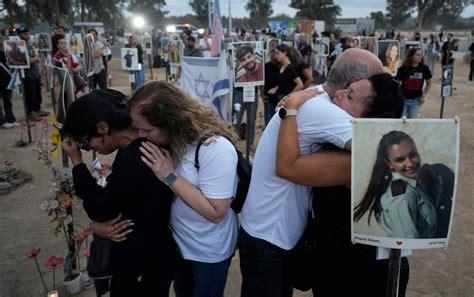
Hamas wanted Iran to join in Oct 7 attack, secret minutes reveal
Hamas tried to convince Iran to join in the Oct 7 terrorist attacks on Israel, minutes of secret meetings have revealed.
The terror group’s leader Yahya Sinwar attempted to persuade Iran and Hezbollah to join the assault or the broader conflict with Israel after the raid, documents seized by the Israeli military show.
The minutes, which were obtained and reported by the New York Times, show Hamas first plotted to carry out the attack in autumn 2022.
Documents from 10 secret meetings of political and military leaders before the attack on Oct 7 2023, reveal that the terrorists delayed the plan, which they codenamed “the big project”, amid efforts to convince Iran and Hezbollah to take part.
Hamas, which felt it had its allies’ support, decided to go ahead without their full involvement because it wanted to stop Israel deploying an advanced new air-defence system before the assault took place, the minutes show.
The green light for the Oct 7 attack was also given because Hamas wanted to disrupt efforts to normalise relations between Israel and Saudi Arabia.
Before that Hamas had “played dead” for two years to ensure the raid was a surprise.
They “must keep the enemy convinced that Hamas in Gaza wants calm”, the leaders said, according to the minutes.
The minutes show that Israel’s deepening occupation of the West Bank and efforts to exert greater control over the Temple Mount, which is sacred to both Muslims and Jews, were also factors in the attack.
After Benjamin Netanyahu, the Israeli prime minister, was returned to power as the head of a hard-Right government in December 2022, Hamas leaders predicted its provocation towards Palestinians “will help us with moving toward the big project” by boosting support for Hamas.
Hamas sent a senior member to Lebanon in July 2023, where he met a senior Iranian commander.
He asked for Tehran’s help in striking sensitive sites at the start of the attack, which took place three months later.
According to the documents, the commander said Iran and Hezbollah were supportive but needed more time to prepare.
The papers also show that Hamas planned to discuss the attack at a later meeting with Hassan Nasrallah, Hezbollah’s leader until his assassination this year. They do not reveal whether the talks took place.
Hamas leaders in Gaza said they briefed the group’s Qatar-based political leader on the “big project”, which was not previously known. Ismail Haniyeh, who was said by some not to have been informed of the attack ahead of time, was assassinated by Israel in July.
Hamas leaders also told Hezbollah they were “compelled to move toward a strategic battle” because of Israel’s “internal situation”. It is believed that was a reference to Mr Netanyahu’s controversial plans to overhaul the judiciary.
Ayatollah Ali Khamenei, Iran’s leader, has denied Tehran had any role in the attack. US officials have intelligence suggesting Iranian leaders were surprised by the assault.
Hamas leaders, however, have spoken about their support from allies and the New York Times reporting, which verified the minutes, suggests there was some knowledge of the plot.
The minutes were found on a computer by Israeli soldiers in late January in an underground Hamas command centre in southern Gaza shortly after the group’s leaders had fled.
The New York Times verified the documents by sharing them with members of Hamas and experts close to the terrorists.
The Israeli military has also concluded they are genuine.
The Oct 7 attack on Israel killed about 1,200 people. Israel invaded Gaza in retaliation and has killed tens of thousands of Palestinian civilians and militants.
The conflict has escalated into a broader regional war with Hamas’ allies in the region. Israel has assassinated senior Iranian and Hezbollah leaders and invaded Lebanon. Iran has attacked Israel with ballistic missile strikes.
Iran is now making a diplomatic push to limit Israel’s retaliation. Sources told CNN Tehran was “extremely nervous” and making urgent diplomatic efforts to curb the scale of the expected response.
A source said it was uncertain if the US could convince Israel not to hit nuclear sites and oil facilities. It was also anxious because Hezbollah, its most important proxy militia, had been significantly weakened in recent weeks.
Source » yahoo.com





